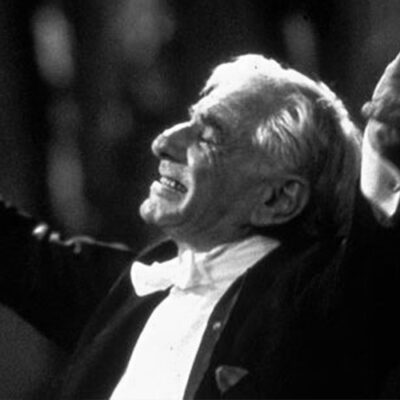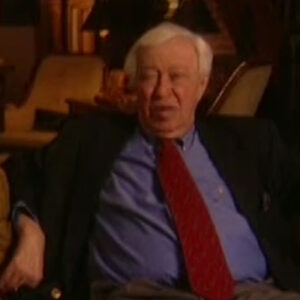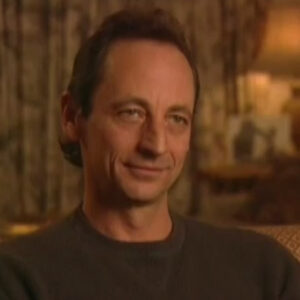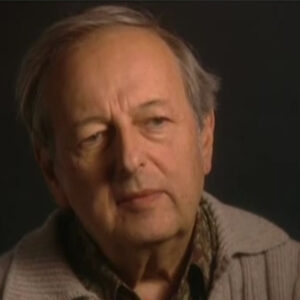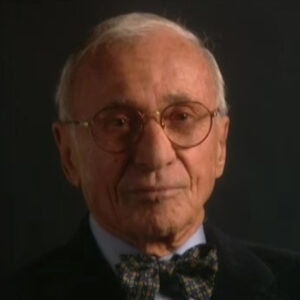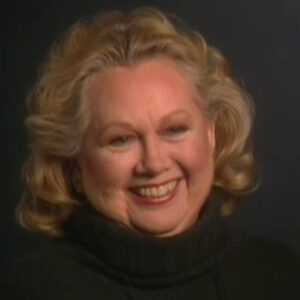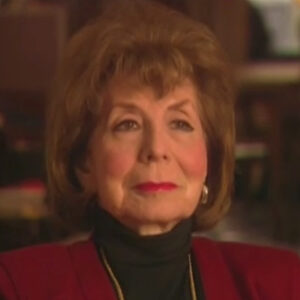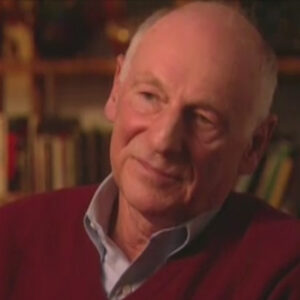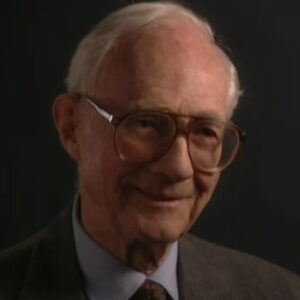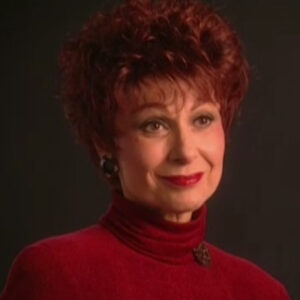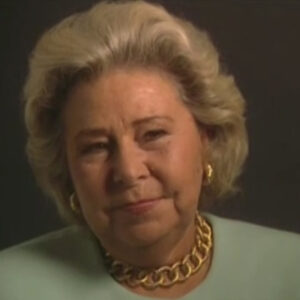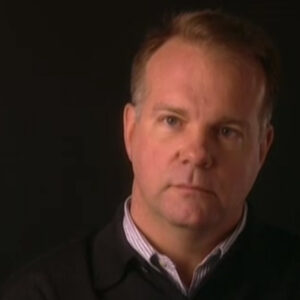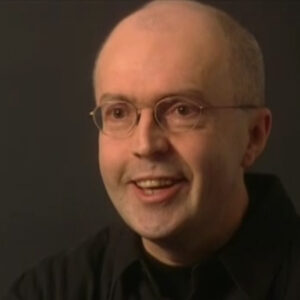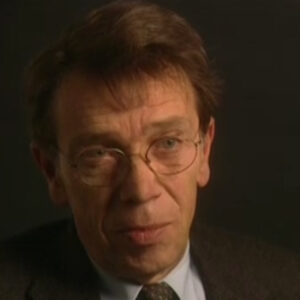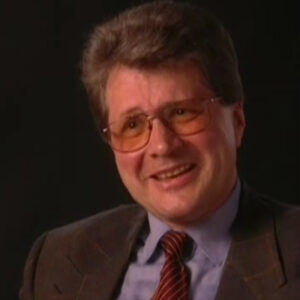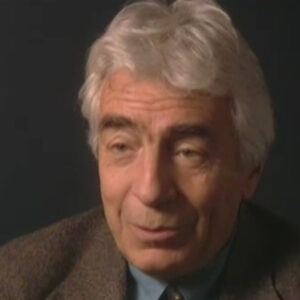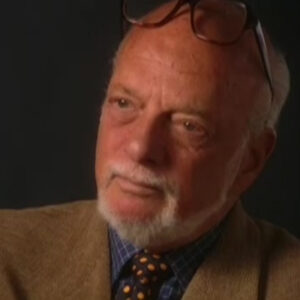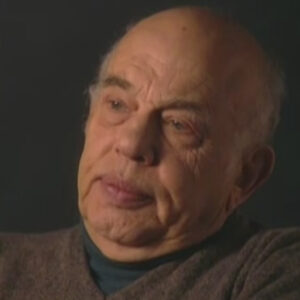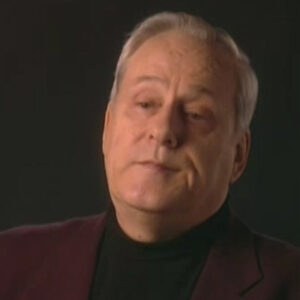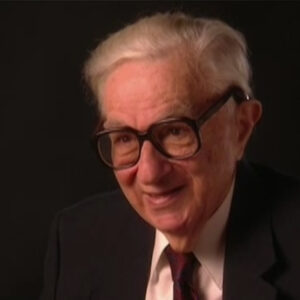Speaker The world premiere of Kadesh, of course, was at Philharmonic Hall with New York Philharmonic and Lineis wife, Felicia Montealegre, as the narrator. And I think, you know, Ginny, Carol and I found it a deeply moving event. I found it as much a homage to Mahler as to lineis God. But I think a lot of us weren’t prepared for the fact that in this piece, the whole Jewish tradition of like fighting with God and, you know, we’re also reverential. And I grew up, you know, Methodists and such. And you tiptoed around the church, the Jews, you know, go in with clenched fists sometimes. And it was this wonderful immediacy in this. Someone once said, I believe that the world premiere, that it was as if Lenny treated God as if he were off in the kitchen brewing up a pot of chicken soup. And that was, I thought, one of the great strengths. And of course, the score is very malaria. And as you know, he later rewrote it. And I happened to be at that premiere, too, in Jerusalem, which is part of a two week Bernstine festival on vacation.
Speaker I think of his if I’m so terrible about dates, 30th anniversary.
Speaker I think it was his debut with the Israeli Philharmonic. And at that point, he really thought the work rethought the work quite a bit. He had cut. The music, he had tightened it up, he had recast the narration for a man instead of a woman, which he felt gave more of the I think the sort of rabbi a feeling for the work and the role Jimmy had done now as a role for Soprano. And that was, of course, how he later recorded it for the second time. But I still think it’s tremendously moving piece. And unfortunately, it’s one of the the one of the three symphonies that has not really caught on and not been played. And I recognized the way it should be. You hear far more often the age of anxiety or Jeremiah, but I think Cordish is one of his most really profound pieces.
Speaker To characterize them. Link, looking at the three symphonies together there, they’re kind of a microcosm of Lynnae in a way. You know, I’ve always said there are two Leonie’s, there’s the sacred Leny and the secular like there’s the New York Linae and the Israeli Linnie, as a matter of fact, come to think of it, of all of those elements come together really only in one work. And that’s mass, which to me is his greatest score. But in the three symphonies, what you have is the young, not brash. That’s not the word I want. That’s a better word for the second symphony. But the first symphony is the the young the young composer out to make his mark and to and to attract attention and also his deeply deep rooted religious beliefs come out in that. And then more of the New York Lynnae comes out in the Second Symphony, which is, of course, a very jazzy thing with a large piano part. As you know, the eight to the inspiration for it was audience age of anxiety poem. And then you find the Third Symphony, I think the Linnie of contemplation, where he sort of almost a philosophical phase, shall we say, where he doesn’t have to prove anything to anyone any longer. And he’s his own man. And I think taken together, they they really tell you a great deal about him, especially if you in in a work like the Serenade, which is almost symphonic anyway. I said, oh, I love his music, I love it, I always have song about the United Nations.
Speaker I knew it was.
Speaker And what do you think can be start by giving it, because actually the age of anxiety struck many people as being unusual at the time. But of course, there are precedents of large scale works with piano of a dandy’s symphony on a mountain there, for example. It’s not a common form, but and I think Lily really wanted to have a display piece for himself, too. I think that was that was part of it. One thing that was terribly touching is he was telling me he told me once about how Koussevitzky simply and utterly could not handle the rhythms in symphony number two and how he would sit there at the piano and teach them to him. And he was the soloist, of course, for the first occasion for the premiere and then played it very little afterwards. It was very strange. Lucas Fosse made the first recording ensemble, the next one and then Lucas again. But I don’t I don’t know of an occasion when he actually went back to it, although I firmly believe he he had developed the work in it and it created the work for his own show of ability. Shall we say something wrong with that? That’s how so many concertos came into being. That’s how, of course, the list concertos came into being. Oh, speaking of which, sometimes I really have something that it’s just one thing I really want to get off my chest about Linnean list. You know, I think Linae is one of those people without parallels, you know, he was he was pretty damn unique. And if you want to make a parallel and you don’t have to stretch very far, the parallel is Francis. In the 19th century, I mean, to me, it’s so obvious they were both, of course, original superstars in their day. They were both pianists, composers and teachers. But what was even more important is they were both sort of patron saints at the time. They were both men who championed the works of other posters with the generosity, such as we rarely ever see in music and to the point that they went out and played these pieces themselves. I mean, the only way Lohengrin can get premiered was for Liz to conduct it. He did it with a small court theater with only, I think, 40 in the orchestra and all. But he was determined to do it. And let me have that evangelical sort of spirit, too. He was so wonderful to stretch that big, long arm of his out to people and and give them a boost up. And some some of the pieces work. Some of them didn’t. Some lasted. Some haven’t lasted. But the important thing is that he cared. He cared about other composers. He was not just doing his thing. And and that was so typical of bliss to also they both had pretty wonderful lives off stage as well, which colored everything they did.
Speaker But I always think of Lenny in terms of list.
Speaker I think Lenny colorful offstage.
Speaker His career. I can’t really say how much in his personal life impinged on the professional life, I do know that when he was working, when he was on the stage conducting or playing everything, he was a total pro. What he did off the stage didn’t seem to tarnish that, are it? I think at times, from the little bit I was able to glimpse that I wish that sometimes the private persona had been a little more paralleled by parallel the professional persona. But, you know, we were lucky to get what we got. Think it’s generally thought that he was generous. Oh, I think there’s no doubt of his generosity, not only to Composers’ but to other performers. He may have had a jealous bone in his body, but I swear, I never saw them. I saw only this tremendous outpouring, this like Beethoven, willing to reach out his arms and embrace the whole world and make everybody brothers. Sometimes I’ll admit it was more theoretical than than. Actually took place in practice, but it was there and there was no mistaking it. And when you think of all the young performers he helped from a young Andre, what’s known and the the composers he played at the Philharmonic and sometimes, you know, push literally down the throats of the subscribers. I just want to stand and cheer.
Speaker I ask that only because we just got to. The Blitzstein, yeah, at least you know.
Speaker Don’t ask, don’t justice. They have now.
Speaker You mean in their friendship? Yeah, and he said that he left just like he did for Mark and his.
Speaker Well, it was what they always relished in the family. Oh, well, that happened in janitorial, too, of course.
Speaker Well, you know, Jenny Tyrrell and Leanne were extraordinarily close to matter of fact, he had played her town hall recital and been to a party at her house that lasted all night where he dominated the piano, as we told Gershwin used to do at parties. And the next morning he was awakened, what, eight or nine o’clock by Bruno Serato telling him he was going to conduct the Philharmonic. Well, that’s a historic day. But Jennie once told me that she had met two geniuses in her life, that she knew immediately they were geniuses. One was learning and the other was Jimmy Levine. And of course, Jimmy used to play for her, too. And I think Lenny got in a very sort of well, it was more than a sticky situation when he felt Johnny’s voice wasn’t what it was. It was going and he didn’t know how to deal with it. There had been so close for so long. And what he did was distance himself. And I remember it was very painful for Jenny at the time, and I think she would have been she what she won was for him to just come to him. In fact, she said to me, why does he just say, I don’t think you’re up to it anymore? You know, let’s let’s start making music together. But I love him. And, you know, that doesn’t matter to me if he said this. And at that point, cheating was about 70, but he chose to deal with it in a different way. However, of course, he made his peace after her death with the most beautiful eulogy. I remember he said something like, whenever Jenny stood to sing, whatever place it was, it became the holy of holies. And like she was almost God’s voice. It was very beautiful. But he had difficulty dealing with it. And when their friendship began to deteriorate and it was I think his solution to it was to just shut the door. But, you know, this is a human I don’t think I don’t know how we all react in certain situations like that. If we were put on the spot, we all have these difficult moments in our lives. How we handle them is not necessarily indicative of your whole fabric as a human being. I’ve only just got this fax yesterday at the ended of the admonishment.
Speaker I hope you don’t feel so, you know, no, I think he’s right.
Speaker You know, I have to be careful that I have the good and the bad luck. Well, I think Lenny had certain problems. I mean, I can’t see the extent of it because I wasn’t that close to the situation. But there were certain, shall we say, testy moments, even with a beloved father figure like Aaron Copeland. But they never really distance distance themselves.
Speaker They couldn’t because Lenny always had a somewhat still little boy quality almost around Copeland Copeland was daddy, you know, and he was the first person he metropolis that Lenny had worshipped in music and who had been kind to him and had extended to him that helping hand that he extended to so many others. But, you know, this is life. We we come and go sometimes some of our our very people who are very dear and close to us can drop out of sight for years through misunderstandings or other little twists in the road. And sometimes you get back together, sometimes you don’t. But still, I got envious. My mother always used to say. You mentioned Gershwin. Oh, yes, and I haven’t asked very much about.
Speaker I need you because you, Lenny and Gershwin have a great deal of. Can you talk a little bit about that, I understand Slimey actually present the Gershwin analogy, I’m told. You first of all, what is what is what are the analogies? What was the.
Speaker Well, of course, the thing that springs to mind, although Lenny was a boy from Massachusetts, we think of him as New York totally. I mean, Lenny is the essence of York in all of its good, bad brashness and excitement. Of course, I don’t think he ever met Gershwin. Gershwin was he was still a teenager when Gershwin died. It’s a shame they should have met. That would have been a dull word in the room. What? When he was a camp counselor. Supposed to play for the last year wanted.
Speaker Oh, my gosh. Oh, anyway, I don’t know, I mean, I’m just rambling on say, oh, I don’t think Lenny ever met Gursharan, but can you imagine them in a room?
Speaker I mean, in the first place that the fur would have been flying as they both fought to get to the piano? Because, as I said, Lenny was great at a party and so is Gershwin and there was room for everybody else. Of course, they were both Jewish. They were both New York, they were both composers. The thing Lenny actually surpassed Gershwin in one sense because we spoke I spoke earlier about this sacred and secular Lenny. I don’t think there was that that panorama to to Gershwin. Gershwin was purely secular in everything. But of course, I’m sure Lindy was green with envy at not having been able to write Porgy and Bess, which of course is the great American opera. And I know Lenny made no bones at all about how he had a great success on Broadway, but it wasn’t Gershwin success. And I think it was his mother who said to him, Why can’t you write a nice song like Gershwin? And and then he went into, of course, one of those wonderful Bernstein and dialogues and lectures on what makes a Gershwin song great. I think he actually dealt with this is one of his television shows and and of course, these deceptively simple but extraordinarily Schubert and Songs of Gershwin, where I think one thing Lenny envied his whole life and would like to have also been able to turn out his pop songs, even the most pop of them, like Maria from West Side Story at all. They still have a complexity that when compared to the simple flow of a Gershwin melodic.
Speaker But, well, that’s one of his most popular, don’t you think?
Speaker Oh, no. What’s a more popular version? See, lady never. That was one thing that bugged me all his life. He never wrote a what do we call it, a hit parade song. He never wrote one for the charts for the top 10 or something like Sondheim will never do that either, although something like Send in the Clowns comes close. But it’s not like, you know, Embraceable You are. I’ve got rhythm or things like these things that are perennials. They’re songs that Lenny wrote, like the Sondheim songs are for very special people, for almost acting singers, for people who can give them a dimension beyond just a beautiful tune, beautifully delivered. He was trying to do some.
Speaker Well, by the way, you know Barbra Streisand somewhere.
Speaker Oh, yeah, that’s right. She also recorded one of his songs, another one of his songs from the Kitty, from the Kids songs like of. So she did this. No, no, no, this is the little song cycle he wrote called I Hate Music. She recorded one of those two I believe I forgot that she’d recorded somewhere was on the Broadway album. Well, you know, that’s the thing about Gershwin, it would have been very curious if Gershwin could have heard Linney play The Rhapsody. I’m sure he would have hated it. Gershwin was a very you could call him neoclassic pianist. He did. If you listen to them and we have live performances as well as two or three recordings, it’s very almost straightforward by any standards. It’s very detached even I won’t call it cold because it’s so much rhythmic vitality to his playing, but none of the liberties that that Lenny takes in it. A liberty such as having Lenny play Rhapsody in Blue. It was almost like it should have been Gershwin hyphen Bernstein. He he rewrote the piece almost. He took a lot of liberties with it and a bit curious to have heard what the Gershwin would have liked. It would have dressed him down. I don’t know. It’s one of those wonderful and answered questions as compared with the Oscars and all the is much more straightforward, much more in the Gershwin mode. There’s there’s not the Revathi, there’s not the sort of variety of colors and little personal twists. But they’ve he always used to say that the only way he knew he’d give it a good performance is when he felt like he’d written the piece himself when he stepped off the podium.
Speaker He had often written about the fact that he believes that the American musical comedy.
Speaker Same spiel and will eventually develop. Yeah, yeah, of course it did. I mean, of course, it didn’t make you come back.
Speaker Oh, sure. And give us an example. Sure.
Speaker You know, when Lenny did the Broadway years, I’m sure it was very satisfying and had to be to create works like West Side Story and Candy and Wonderful Town. But I think in the back of his mind was an even bigger purpose. Lenny hoped that this would open the door to a new kind of American opera because American composers had floundered all over the place. They were too inhibited, I think, by European models and European successes, with the exception of Gershwin’s Porgy, but which was has only been appreciated in the last decade for what it is as a grand opera. Before that, it was always given in some sort of cut down Broadway version. Yeah, but Lenny really hoped that he could lead the way and I think secretly hope that someday he would write them the American opera. He didn’t, of course. I mean, quiet place is still a problematic piece, even after all the changes that went on after the world premiere. And, of course, his dream of having Broadway lead the way. And he God knows, he gave them enough examples, you know, with something like the great, great quintet in and in West Side Story, which is, you know, I always think almost Falstaffian, you know, moments of candied and all. I mean, glitter and be gay is like the best thing to happen to Color Toura since the best song from Lakmé. But it didn’t happen. And the reason it didn’t happen and it’s one of the tragedies, I think, in our musical theater, which was in the 30s and 40s and 50s, such a rich band of inspiration was that Broadway gave up the right to fail. It became so damned expensive that, you know, it led to formula shows it didn’t lead to anything except with Sondheim. Sondheim was one of the few people who could buck the system and make it. But Sondheim is is for many people, an acquired taste next to, say, Rodgers and Hammerstein. And I think that’s a sad fact, because I think probably one of the things is that Sondheim did not have the basic to writing the immediate distinct tune, which Lenny didn’t have either, and which I think both men would have liked to have had as Gershwin, that is Jerome Kern did and certainly got those Richard Rodgers did. So Broadway turned down the commercial road and never looked back. One show had to be like another show. Until we get to the point of Andrew Lloyd Webber, where, you know, it’s you, as one friend said, you go out whistling the scenery at the same time, I think this commercialism on Broadway turned American composers who might have done something significant had they modeled Lenny continued it, turned them away from it. And so this hybrid he hoped to grow didn’t happen. The only person who is sort of really made a a. Milan’s, shall we say, of Broadway elements and operatic elements, was Bill Balcom about one side story?
Speaker Oh, with pleasure.
Speaker Baseball players and it is extraordinary to me. We’ve got to do something incredible.
Speaker I mean, there’s be really I mean, it’s like, well, you know, we didn’t know.
Speaker No, I believe that I totally believe that Stephen Sondheim has such mixed feelings about all that. I need somebody to talk about it and has a phenomenal work.
Speaker Oh, you know, I don’t think it’ll be right now.
Speaker I know. I’m so wishy washy.
Speaker I mean, I don’t know.
Speaker There’s something important to be said about it.
Speaker And that one of one of Lenny’s great friends was the great writer and dramaturg in Vienna, Marcel probably and probably gets very, very cross with Americans, and rightly so, because he believes West Side Story is one of the great 20th century operas. And they produced it that way in Vienna with no apologies and no shame. No one really, really loved him. But they got along as great friends, too. And I think it’s one of the most remarkable theater pieces of the century. I was not at the first run, unfortunately, but I was lucky enough to be at the Winter Garden the night it came back from the national tour and Lily stepped in the pit and conducted the overture. I wish she’d kept on all evening long. And of course, as you know, he never really conducted the whole score until that recording, which was a mess. But anyway, that’s another story. But this this is a titanic work. Not only from Lenny’s score, which is brilliant and which has a life of its own in the in the sweet, but in Robbins’s whole concept, the choreography and in many ways I think the film was a very amazing transfer of it, considering the commercialism that had to be involved out in Hollywood, too. But it was very courageous, I thought, to take those kids actually on the streets of New York and do it to film it that way. And actually, I think if you love the musical, you have to know the film, too, because they’re complementary in this way. But the film is a tremendous I mean, the musical instruments experience. I despair of it, but finding the place it should. However, apart from your phonograph or listening to a CD or something, because it’s a difficult work to cast. Lenny proved that with his recording when he tried to do it all operatic. And it was certainly proved with the last revival on Broadway, which didn’t work at all. Somehow there was some sort of magical charm at work with that first cast with Carol Laurence and Larry Kert and a magic and a power that I think is inherent in the score, which which really hasn’t been raised in the theater since, you know, as far as I’m concerned. But but the there’s no denying that this is a very, very exceptional work. I still wonder if I have to pick one piece of blinis. It’s always going to be mass. But I think West Side is a was a landmark in because it gave us it sort of did for Broadway what Puccini did for opera. It introduced this whole element of verismo. Everything before that had been lyrical romanticism when we were talking about Kahn growing in Oklahoma and, you know, climbing mountains in Austria and all this. But Linebaugh, real life, real realism, the streets of New York onto the stage. And as Ted Robbins, we mustn’t shortchange him. And the results were overwhelming.
Speaker But you’re quite right that the sport really can exist.
Speaker Oh, it does. It can. Well, certainly that’s how candid exists. It’s never going to ever be totally successful on the stage, there’ve been too many cooks in the kitchen. Although it’s a very extraordinary score, I think, but even Lenny couldn’t make up his mind about candy and what to put in what you put out at home, I have at least four different versions. There are songs for London. There are songs that were added for the Hal Prince revival. There were songs that were added for the for the New York City thing. There was this so-called opera. It goes on and on to where it’s more complicated to put on candy today than it is very distant. Carlow, which has, you know, so many additions and changes and cuts and everybody is fighting a new page of music and somebody Coubertin sticking it back in. It’s not unlike candy.
Speaker Let’s talk about theatricality and begin to talk about it with respect to I’m sure he had in it.
Speaker And how do you how would you how did you see it?
Speaker What were your moments?
Speaker Here at the opera stage right now, I don’t quite follow you, Susan, from where we look at my work.
Speaker Yeah, you talk you talk about the person ah they were talking about his name, theatricality and how that translates into the end zone come alive, which culminates.
Speaker Oh, so that’s what Mass is, a great masterpiece.
Speaker I mean, you begin with Cradle Rock, which was not his, but it is sure.
Speaker You know, and I know very little about it other than it was done now for this weeks.
Speaker And I was a kid. I coached kids to work with a kid anyway. So the beginning. Yeah, I just I can’t get a correlation with that.
Speaker That.
Speaker Was it the pirate king is anyway there is increasing pushing the edge of that which finally. Yeah. Yeah. I think there are a couple of landmarks way musically. Yeah. That made it worse.
Speaker Oh I see what you’re saying. And I ask you this very well.
Speaker Uh, I suppose one reason that I feel so strongly about mass is because not only is it a score of dazzling invention and it’s a totally original, you know, original theater piece as such, it’s not an opera, it’s not a musical, it’s it’s mass. And but I think the reason why it fascinates me so much as I see it as the culmination of everything he been building to starting back with, you know, his oh, I didn’t see things that he did in college, like the its little music for the lark and things like that. But you could see each step of the way.
Speaker How.
Speaker Fancy Free was wonderful, but on the town was better. Wonderful town and expanded even a little more. There’s a growth there. It’s almost like this incredible exotic flower just, you know, opening up until we see it.
Speaker It’s full of splendor, which was massive for my mind. And I don’t think that that’s why I think a quiet place was so out of the out of line with the rest of his development. I think he was self-conscious in quiet place of producing the American opera he wanted to produce. And it is a self-conscious score to me, even in its revisions. And it certainly is one I don’t think of after, because I don’t think he continues that incredible line. I’m not sure that line could have been continued. I’m not sure that there was anything left to happen theatrically for him after creating Mass, because mass is just such a totally individual and original piece in every way. It’s a way which I it’s a work which I heard that long ago, and it was just dumbfounded to think how it holds up. There’s not a dated thing in it, at least for me. And that first night at the Kennedy Center was still one of the blazing moments in my memory. I mean, the audience was in tears at the end. I mean, when the kids came down the aisle touching people and saying, pass it on, people were embracing. It was I mean, love in such as that society money audience, I’m sure it never contemplated before.
Speaker And all of us were were deeply, deeply moved. It was quite a quite an experience. Is that what you wanted? I don’t know.
Speaker OK, tough action. We’re on it. Let’s just.
Speaker And is autobiographic.
Speaker I don’t really like the peace at all. I know, I’ve just said I’m sure you get people to say better things about it. And also I don’t. I read every stuff, everything connected with it about how, you know, Lily had lost Felicia. Stephen had lost his sister, all of this. I think that’s probably one of the things that drug it down that that it got to be too personal and to an artist when he’s creating has to keep, has to be hot. Yeah, the clay has to be ready to mold it all. But you’ve got to keep a certain emotional distance, too. It’s like. A singer once said to me, it’s my business to make the audience sweat, I don’t sweat. And this is the sort of thing it’s been manipulative. Yes, but I think that’s an important part of the creative process. Maybe I’m wrong. I think yeah. I think yeah. And I think he was he was just too conscious of what he was trying to do, where I think with the other works, he simply wrote his heart out.
Speaker But I did talk to somebody else about quietly, I’m sure you got lots of folks like this before, I think you have to leave. I haven’t gotten it. Let’s talk about. I know you weren’t there worried about it, but I have now, as I understand it, first of all, to the whole, you know, start how they met and everything.
Speaker Yeah.
Speaker This is very few places that really said that she changed abruptly that night because he said it was before Carlos.
Speaker But on top of that, they gave me her the best performance she’d ever given up to that point. Is there some truth to that story?
Speaker Some truth, but it’s not the truth. Yeah.
Speaker Can you just give me a little.
Speaker It took us a while to get to La Scala, she did not get along very well with general manager, but once she got there, she was firmly installed as prima donna. Absolutely. And one of the first things that Skoller new productions they wanted to do for her was to bring back crabbiness media, which she had done the previous year at the major music hall in Florence. And it was to have been it was you production. It was to have been conducted by Victor de Saboteur, who was the music director of La Scala, but who had a very major heart attack and had to withdraw, just as I believe, just as they were getting ready to go into the rehearsals. Well, just as fate would have it, you know, the Italians say God closes one window and opens another. And Lili was in Italy doing a bunch of concerts and causing a great deal of attention, which is not unusual for for him and Schola someone at Schola had the inspired idea of asking him to do media.
Speaker And he said when he was asked, he said, I didn’t even know there was such an opera. And he said they sent me the score down and I opened it up. And the first thing that happened was all this dust flew in my face. I started sneezing and I saw these throughout the whole rehearsal period, everything. But amazingly enough, he and Maria got along like a house of art. I don’t know, because they were both New Yorkers, but they are. And of course, they both thought alike musically. Whatever the reason, there was a real union was made there.
Speaker So much so that Marie even let Lenny cut half of one of her arias, which was a I don’t think she might have stood for someone else, but she believed in him and she had great instincts. She was very intuitive about people and things that if she decided, she decided almost immediately or if you were a good guy or a bad guy. And of course, Lenny was a great guy and so successful was the birthday. Of course, he was invited back to do Sonnambula with her. And Luchino Visconti, which I remember John Carlo Menotti told me it was the most perfect opera production he ever saw in his life. And both of them were on top of the world at that time. And he wrote all her cadenzas for her. She abandoned some of them later because they were a little too elaborate by her taste. But she was a real trouper at the time and did them all. And after that, they never performed together again. But they did remain close. It had its had its rocky moments. I remember in 1970 I was in Paris and I had lunch with Maria and we were sitting afterwards in her, her bedroom talking and suddenly she picked up the remote control and began clicking it, going from channel to channel. I thought, boy, am I a boy or you know, the lady’s trying to tell me something. So I got up to where are you going? I said, Well, you know, I thought you wanted to. She said, Don’t be silly, sit down. So we talked a little more and she began clicking the channels again.
Speaker So I thought, oh, well, you know, that’s that’s that.
Speaker And I moved out from Paris to Vienna where Lenny was doing Fidelio. This was the first performances after they had moved into the Opera House from the theater under him. And it was breathtaking performance. And I went back afterwards to see him and exuberant moments. He always said, Hi, Texas, how are you? And I said, fine. And he said, we’re all have you been I said, Oh, I just came from Paris, Lenny, where I saw Maria. He suddenly changed and got this look on his face. He said, that bitch. He said, I’ll be damned if I’ll ever fool with her again. I said, What’s wrong? I mean, were great, great friends and all. He said, Do you know? I went to see her on my way to Vienna and we were sitting in her living room and she picked up her remote control and she began clicking through all the channels. And I howled with laughter. I was glad to know it wasn’t just me that she could do this to Bernstine. But of course, they did see each other again. They did patch it up. Lenny had had this great dream with Franco Zeffirelli to do Aida in Egypt, either in front of the temple in Luxor or at the base of the pyramids. I don’t know what. And it was a grand design, as always, with Lenny and Franco in which they were going to bring the Israeli Philharmonic, use an Egyptian chorus and international stars. This was going to be a massive brotherhood along. Verdie. The problem was I think they had Domingo actually for the tenor. And the problem was they could never find an idea they liked or agreed upon. And Lenny had an audition in Vienna, a Hungarian soprano named Sylvia Sosh, who was very impressed with and immediately bundled her on a plane and took her to Paris for Maria to hear her and to get Maria’s opinion, which Lenny said turned into a two hour coaching from Carlos that drove him crazy. And he just finally got up and left the two two ladies alone. And Porscha, she said, look like a bringdown dishrag. She didn’t pan out either. Neither did the Aida. But they I think they continue to be good friends and.
Speaker To the point where I think Lenny has actually been quoted as saying that she was the greatest singer of the century, which in my book is no understatement, are no overstatement. Excuse me.
Speaker And I think, you know, the thing is that, well, of course, she had to approve it, but the theater, someone at the theater simply said, what about this extraordinary Bernstine who like just conducted in wherever Florence or whatever, and they extend an invitation to him. And I think Felicia actually tried to talk him out of doing it. She said, do you have time to learn a new score? Do you want to? Well, of course he wanted to. Got a scholar to. You can’t blame him. He was the first American to ever conducted a scholar. And in between the media and the Sonnambula, he actually conducted his only performances, a poem in his life there, apart from the recording he made.
Speaker Yeah, it’s an for night.
Speaker Oh, he adored, but who doesn’t love boy? There are some I never liked him and I know he loved Bohème and he dreamed all of his life of doing it again after the scalloping.
Speaker And the closest he came was the recording he made for Deutsche Grammophon.
Speaker So did you. So you never heard us talk about what she got from Lenny?
Speaker Yes, in a way.
Speaker Maria was a very fascinating person on many levels. That’s probably the understatement of all times. But one of her fascinations was she saw everything in terms of herself.
Speaker If it was raining, why is God doing this to me? When I went to go out today, you know, everything was personalized. And I remember we were talking about the the time of day. Is it La Scala? She didn’t get along very well with Tommy Shipper’s, who conducted the revival. And I think it was.
Speaker The late 60s and the early 60s, 62, 63, maybe I’m terrible on dates, but she didn’t get along with him and I asked her about it one day and she said, oh, well, she said it’s all my fault.
Speaker I take full blame for it. She said, after all, I got them. Bernstine but I couldn’t be right twice. And I thought, well, that’s one way of looking at it, lady.
Speaker But she never talked about what? No, No.
Speaker Two, I think to Kahless, she it was a perfectly natural thing to her. They were colleagues. They were both very gifted. They were both superstars. They both got along very well. It was you see, it’s very hard for us mere mortals to realize that when you have the gift of a Carliss are the gift of a Bernstine, how natural it is to them.
Speaker They couldn’t be any other way. They couldn’t make music. They couldn’t function. They couldn’t think any other way. I’m sure Lynnae never realized just how overbearing he could be at times or how depressing he could be at times. Ah ah, how great he could be at times, because what he did was a purely natural thing to him. It was what he felt. He did what he felt. Maria, the same way the rest of us who stand in all of these monolithic figures, these mythic characters like Coleson, Bernstine, everything they do to us seems, you know, a miracle and remarkable.
Speaker But to them it’s the same as breathing and so much so that someone like Kahless, after she lost her voice, did her best to try to understand what had happened. It had all been such a natural mechanism to her, she couldn’t begin to fathom what had gone wrong. And I’m sure that Lenny could never understand the people who took him to task for his so-called podium antics, which I never saw his antics, which I always believe were the outpouring of a of a generous, marvelous spirit that he felt this, but he couldn’t understand to him what he did was so right and so natural, and it couldn’t have been any other way. He was that he was totally honest as a musician. I never, ever, like Callas, knew him to do any anything that was remotely dishonest. It was always from his deepest feelings and it must have broken his heart. And it certainly made me mad when people labeled him as a show off and nothing else. This was this was, I think, so grossly unfair. And it happened all through those years in New York in the sixties. I started going to the Philharmonic his first season there, and I was appalled at the things that were written about him at the time. It’s just like today, you know, Lily never wanted for performances, but they weren’t for performances of the music he cared about. It was his show music that carried it. And I wish he could be around today to see this dam that’s broken and the floods of performances that are pouring out all over the place of Serenade of the three symphonies. This is the sort of activity in the breath of things that he didn’t have during his lifetime. And he wanted it. I think more than anything else, he wanted to be accepted as a composer. I think that was the one thing that meant the most to him and that he wanted so badly to have the approval of the music community for it. And at the same time, some of that music, the approval was denied him because of his Broadway work. But he couldn’t deny himself that either. That was a part of the whole thing. And of course, today we see it in perspective with all the other music in a way many people didn’t at the time. But we see it as just one other aspect. Again, the secular side of the coin.
Speaker What do you think?
Speaker Oh, nine, and it’s conducted by Lenny.
Speaker She’s well, you’ve look, I’m sure all the Harvard lectures, because here’s that program on the Mahler Ninth is just simply goose bumps.
Speaker Goose bumps, bems mumbles whatever it is to think about it. Because it’s so incredible, especially his talking about how.
Speaker The M is the.
Speaker The whole approximation of the experience of dying and death in music of a heart simply slows down and stops beating. But who else but leaning in those lectures, you know, those were so badly treated at the time, it really made me well, I you know, I get mad about things like that. But what he was doing was opening a door. He was opening a window. He was saying, come here, let me show you what I found. I don’t know what it is. I don’t know what we’re going to make of it. But it’s interesting. Let me show you, he wasn’t trying to do anything for posterity. He wasn’t trying to, you know, give the final answers to all these. He called it the unanswered question, for God’s sake. It was unanswered. But he said, think about this. You know, isn’t this phenomenal, this this link maybe between phonetics and music, this this idea of the poetry of the earth of tonality and the justification of tonality. That’s what he was telling us, what is leading us to who? But Lenny could do a whole program comparing Stravinsky’s Oedipus Rex to Verdi’s Aida and make it work. Jesus Christ, it was incredible, you know? I mean, and it was material to think about. Lenny was not carving anything in stone. He was not telling people, you know, that I’ve got all the answers. He was not being the big guru he was sharing. That was the story of his life. He was giving you something to think about. He was telling you what a wonderful, varied, exciting thing music is, how many facets it had, and that you should think about it and you should mold these over and see what you thought about it. But everybody held him his nose to the, you know, to the grindstone over it. It’s like, you know, I got mad when people accuse Peter Schaeffer of distorting Mozart. Well, Amadeus was not about Mozart. It was about this age old question of talent versus genius. Just as people get upset with Terrence McNally over master class, that plays not about Carlos Collins is a symbol in it. It’s a play about what it takes to be an artist, the sacrifices and what you give up and how you can’t be an artist and a real human being, too, if you’re going to be an artist of the dimensions of Maria Callas.
Speaker But people are so damn literal at times that they are the losers because it gets in their way and they can’t see the forest for the leaves, and that’s what happened with the Harvard classes. I think the Harvard classes are among, you know, one of the most precious documents we have of a of a man who is handing out pouring out these riches into our laps, giving us these things and saying, you know, now you take this and make something of it.
Speaker What were the critics saying? What were the voices of critics?
Speaker Oh, they took everything so literally they tried to.
Speaker You know, see it as answers when, as I said, repeating myself, it was called the unanswered question and Lenny was trying to lead you around to the concept that music must have roots. And where do you put roots down? You put them down in the earth, into the ground. And that’s what tonality is. And the moment you pull up those roots, that then something’s going to die. It’s not going to grow and flower and give off seeds and make other plants. And that’s what had happened with music.
Speaker And he was concerned with it. He was concerned it wasn’t a, you know, a sales job for tonality as much as it was a sales job for the future, music that he felt was so deeply bound up in tonality.
Speaker Oh, no, no.
Speaker Oh, they were they were vicious to him, vicious, you know, I never understood why he cared about the press. He did, though. I remember being at a taping one morning. God, I got up at six thirty in the morning. Roger England said you’re interested in television. Come see how it’s done. And so I touched down at Carnegie Hall for this Young People’s concert taping. And I remember Lenny wandered in about seven o’clock and sat down on the podium. He had a cup of coffee. He was nursing. And suddenly he looked up and he yelled out the audience because he knew Roger was in the control room and could hear him. And he said, Did you see Paul Henry lying this morning? And then he went on and on about the idiocies that had been in this review and had it again, taken him to task for silly things. And I said to myself, watching because I was watching it on the monitor and I said, why should he care? Why should I mean, they’re flea’s, he’s an elephant. Why should they even bother? But he did bother and he took these things very sensitively. And I think probably the answer is that more than anything in the world, Lenny wanted to be loved. He wanted to have people care about him. He he had enemies, I suppose. But I think he must have regretted them. I think he would love to have tried to make Adolf Hitler love him if he could have. And Lenny had this incredible persuasion where generally, you know, if you were in a room with him for ten minutes and he wanted to win you over, you know, you didn’t stand a chance. The personality was so pervasive and so strong. But and I think that’s a great deal that was behind all the television things, too. It was his electronic way of reaching out for this these thousands upon thousands of faces he didn’t know have names far and to make them love him. I’m not I’m not going to play the armchair psychiatrist. I don’t know what the reasons for this was, but I do know that he wanted this more than anything else. And I do think that in his soul, he believed, although it wasn’t always true in practice, that he loved people more than even he loved music.
Speaker You said sometimes he wasn’t sure.
Speaker Yeah, yeah, yet. Well, that’s something else. But now I don’t really want to say anything because I don’t want to, but he could be extraordinarily petty at times to, you know.
Speaker No, I really want to know.
Speaker I mean, I saw I saw him anyway. I don’t think it was on purpose. I think it was mindless. But he you know, he could he could treat people very badly to children of of, uh.
Speaker Oh, God, yes, I’ve seen it, I’ve seen it. Well, I mean, I felt it.
Speaker Don’t give me an example, but what do you think? What do you think? Spurred by voting for a man who was so generous?
Speaker I don’t know. It always frustrated me. And that’s what I said, that I wish the times that there was as great a generosity to the human being as there was the musician, and there always wasn’t. I’ve I’ve seen I saw several acts of just cruelty, you know, and I couldn’t understand it. It was something you were more than willing to forgive because, you know, there was so much you were richly compensated for.
Speaker But I never truly could explain it.
Speaker And it always frustrated me. I don’t know. I suppose when we have people that are sort of gods to us, that we expect the human being to match the artist. And it doesn’t always and I think in particular with conductors, it’s a real problem. I’ve only known maybe two conductors in my life and I’ve done an awful lot of them and I’ve been close to a number of them that I could feel were generous in part in human beings, too, who weren’t flawed as human beings. I don’t there’s something about the act of conducting that is so ego. My, my. What’s the word of a that is so oh, there’s something about the act of conducting that is just so ego ridden that it causes you to lose perspective not only about yourself, but about life and about people around you to really think that the world is totally dependent on you when it’s not. You may give great joy and you may give great knowledge and awareness to people, but I’m crazy enough to believe that the first duty of everybody is to, first of all, be a human being.
Speaker And that, in turn makes your gifts even greater and magnifies them. And I would say 80 percent of the time when he was like that, I’ve seen acts of incomparable generosity that he didn’t need to bother with. I mean, touching things. And then I’ve seen him, as I said.
Speaker I don’t understand it. I just don’t understand it.
Speaker Did you give me a long time and then you started becoming increasing its behavior called the increase with age?
Speaker I can’t say that it increased with age because my closeness to him and I can’t I wouldn’t call myself even an intimate friend, although I spent a lot of time with him. But I would say that my closest to him increased with age. I mean, so I when I first knew him, it was very much you know, I was a journalist. He was maestro. I think later we did cross over to a sort of a friendship. I was certainly never an intimate like someone like Mindy Wager was, who was his very best buddy, certainly never on that scale, but. By the time I got to a, shall we say, a comfortable footing with Lenny, and it was never really comfortable, I always felt like I kind of, I don’t know, schoolchild who had been in to see the principal. You know, I couldn’t be totally comfortable with him because I admired him so much. But by the time I got to that point, it was already late towards late in his life. He was in the last 10 years of his life. So I couldn’t say I couldn’t see any development or pattern there, shall we say.
Speaker Very good friend in his current state. Told me that she thought as he got older, the conflicts in his life came where?
Speaker And oh, I don’t think so. I think it probably gone too far. You.
Speaker His response to that.
Speaker You know, I don’t know, I you know, I think that it wasn’t.
Speaker So much cruelty, I think that’s a harsh word. It wasn’t so much cruelty as it was just plain thoughtlessness. And at times maybe you caught him at a bad moment where he just couldn’t be bothered and his thing was to snap up. It certainly was in several cases with me.
Speaker I had.
Speaker I think I had to was at the ability to be in the wrong place at the wrong time. We did a gala on PBS at the Metropolitan Opera, and I had the brainstorm that we should in the whole show, we needed an ending, which then the whole show with West Side Story, which just opened on Broadway. And so we had a whole. A couple of scenes from it, but of course, this was such an incredible show, we’d never done a big variety show like this before and not everything had been thoroughly checked out. And when it got to West Side Story, of course, at the Met, these young singers had to have mikes and we got terrible feedback. And there’s just horrible noise was resounding through the Met. And so there’s nothing to stop do but to stop and fix and do it over with. Well, Lenny was in row one. The idea was that Beverly Sills was our hostess would go down and bring them up on the stage and he would congratulate everyone. And so we redid the number after we fixed the mic problem and he came up and he was wonderfully effusive in everything and hugged all the kids. And the curtain fell. And I was standing in the wings and I walked out towards the stage and he whirled around and saw me and. I get chills thinking about the words I got, I was suddenly blamed for the whole Mike thing because I had gone to him about doing West Side Story there and it was terrible.
Speaker He ate me out, like, I think that was bad.
Speaker But what was even worse was later we the producer and I and all went to the ginger man for dinner and he was there having dinner already. And as I walked in the restaurant, he stood up at his table and yelled across the room about the whole Mike thing and all. I just turned and walked out of the restaurant.
Speaker I don’t understand it, it was not necessary, I mean, I can understand him being angry, I can even understand him being angry at me.
Speaker But this this went beyond just being anger to the point where it was almost cruel. But again, I come back and I say that it was really more thoughtless than cruel. And I don’t have any reason, any reason for it. I don’t know.
Speaker I don’t know.
Speaker I guess I was just the nearest person. I was the wrong person in the wrong place at the wrong time. And there were others, you know, who found themselves in similar situations.
Speaker Oh, where are you? Do you remember the. Now, he was livid about it. And I was the first person he unloaded on, but why it happened later in the restaurant, I don’t I don’t know.
Speaker I saw lady conduct several operas, Falstaff, Fidelio and Carmen tour at the Met and one was in Vienna.
Speaker And I think what he brought to them that was so extraordinary was this life giving energy. I mean, they they bristle, they gambled. They they came to life in a way that they never did with any other conductor. For me sometimes, as in Carmen in particular, I think he leaned a little heavily. But even still, it was it was still part of a whole. But where is it really all came together in the most extraordinary way was Falstaff and Fidelio, and it became real theater. You know, Fidelio is a mess. It’s a conglomerate of styles. It begins the same spiel and ends is I don’t know, there’s this huge knock you on the head with C major. But Lenny made sense out of the whole thing. And of course, Falstaff has since to begin with. But Lenny gave it a quicksilver quality. It was it was pure theater. It was it spoiled me forever. I find it very difficult to go to performances of that opera after years, and especially when wedded to that incredible Elizabethan set of Franco Zeffirelli. There’s one scene in in mistress for for its garden. There was nothing with these huge stems, all of the hollyhocks and everybody running through them and around them and doing their little, you know, mischievous business here and there. And then all framed by this huge Elizabethan building. And as Franco caught the spirit for the Aleynikov for the air, and those were performances that, you know, you just get down on your knees and thank whoever there is to thank that you were there.
Speaker Can you imagine? I don’t laugh and say, oh, I’m so sorry about that.
Speaker I mean, really, I guess the question is, what would music, American music look like without it?
Speaker Oh, it’s impossible to think of American music without Bernstine.
Speaker He’s one of those those creatures that if he hadn’t existed, he would have had to been created to exist. You know, just think about it. There was such a thing as an American conductor before, Lenny. There was such a thing as a young conductor before Lenny. I mean, there had been a man called Howard Barlow who did radio work for CBS. But, you know, that was, I think, serious. I’m talking about in the vein and the Toscanini Stokowski Fritz Reiner vein. There hadn’t been an American. Lenny opened the door for all of them. The American composer, OK, had had a foothold and continued to grow. We can’t credit him with that. But certainly the idea of a 20 year old getting up and leaving the Philharmonic and being on page one of The New York Times the next day, this this is from Mars, you know, and he certainly paved the way for people like Michael Tilson Thomas and Jimmy Glavine and Andrew Litten, who came after him. And plus countless others, and no longer was age a stigma, you know, up to that point, conductors have been people who came into their own when they were 50 or 60 and went until they were 80, getting slower and slower all the time. But, you know, here was this incredible breath of fresh air, this new approach to peace, as we all knew backwards, this new vitality that hadn’t existed before and. He was the right man at the right time for the old cause of American music as opposed to American composition, but the American musical scene and of course, this was made clear in spades when he took on television. No one had ever used television like Bernstein. And it wasn’t a pulpit he did preach. It was, again, a way of sharing, a way of giving what he had found. He was so full of excitement like a kid when he discovered things in music. And he want to tell you, I mean, I’ve seen this happen over a dinner table as well as in front of the, you know, television cameras. It was a part of his life. It wasn’t just a persona he put on for the camera. It was there this he called it being a rabbi, this question of teaching. And he said, of course, he got a great deal of it from his father, who was a wonderful story he tells about. If you’re at the dinner table and you said to Mr. Bernstein, senior pass the salt. Ah, salt, he said, and would go into this whole dissertation about salt in history and salt in the Bible. And so, you know, let had the same sort of character. It was wonderful. I remember one night after a performance of opening night at The Man had opened with Aida late one year because of a strike. And there was a dinner party afterwards to which I’ve been invited. And I got to the it was at the plaza and I got there and Lily was there all alone. And this booth, he was the first person to get there. And so I joined him and he said, well, I’m curious to see what you think about tonight. And I said, What do you mean? He said, well, how are you going to write this one up? And on the spot, he improvised three interviews. I mean, three reviews for me. What? All three valid. All totally different. All dazzling. And I said, you know, why don’t you just go back and write this for me instead? But that’s the way that mind work. You know, he saw all these possibilities, like, you know, he started off by saying, oh, well, it’s amazing that the Metropolitan could pull together a performance like this, considering they’ve been out on strike. And it’s that number two, what a disgrace that our major opera company could put on an evening like this where there’s no number three was sort of a midway stop. I was dazzled. I was just dazzled. But that that was what that line was. It was just so quicksilver. It was always I don’t like it. Like a generator giving off sparks.
Speaker Notice that this story told us about.
Speaker How is that the television story?
Speaker Oh, yeah, that was funny. Do you want to tell?
Speaker I worked on a series of radio programs called The Bernstine Years each. Each program was a year in his life and I had to go to go over the scripts with him one day. And I got to his place at the Dakota and he was busy work at his desk. And I said hi. And he looked up and he started in this harangue waving this. What I found only was a telegram saying, what the hell do these people mean? He said, you know, and he read it, start reading in Italian like, you know, those Partito, where’s the score? And we have to have the parts for this. He said, I don’t know what they’re talking about. I’ve got no concerts coming up in Italy. And then he stops suddenly and this funny smile on his face and he said, Yeah, but isn’t it beautiful? You know, even when they’re seeing something that’s common, it reads like a libretto. And he read the words again to the big stories of useless Partito and all. He says it’s like Puccini. And he rushed to the piano and on the spot improvised a Puccini aria, which he sang using the words of the telegram. You know, what do you say after that? It was just and then he just got a matter of fact and said, well, we better get to work.
Speaker Something you might say about Lenny. I do you think?
Speaker Oh, I said what I thought was very important about the. About the last parallel, I think, is very important because they stand as polls as two of the great. Movers and shakers in music and who were so distinguished by their incredible generosity to other people that went so far beyond the call of duty. I think that’s amazing. I, I just think it was an extraordinary opportunity and blessing to have known him. There certainly has been no one like him in my experience. I mean, this personality that by walking into a room filling it and you took on his mood, if he was in a good mood, the whole place bubbled. If he was in a bad mood, everybody sat around like they were in a mortuary. He he just lifted you to whatever plane he was and hour pulled you down or whatever, you know, depths he was in. I’ve never seen such an incredible demonstration of charisma in my life as whenever you came up against him. And I could understand why everybody wanted to be close to him, want to be near him. And it must have been very difficult for him. Everybody wanted a piece of him. Everybody wanted something back in the green room or on the street or after a concert or rehearsal or something. There was always a crowd of people there who wanted something from him.
Speaker And generally he did what he could to to give it in that respect he was unique to.

